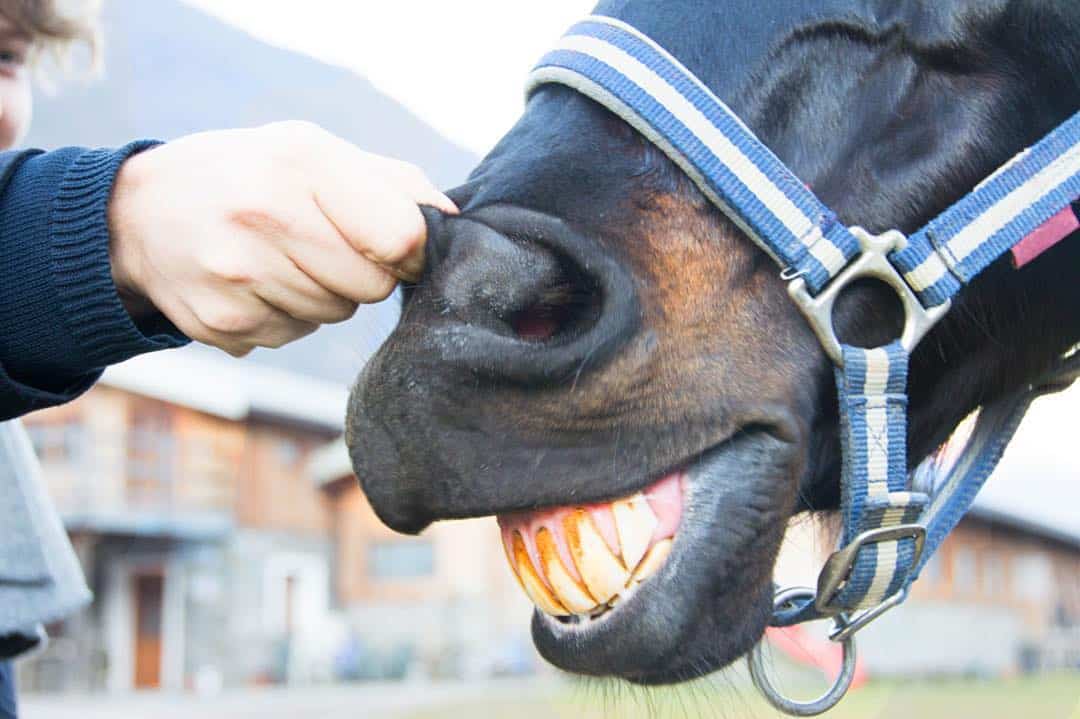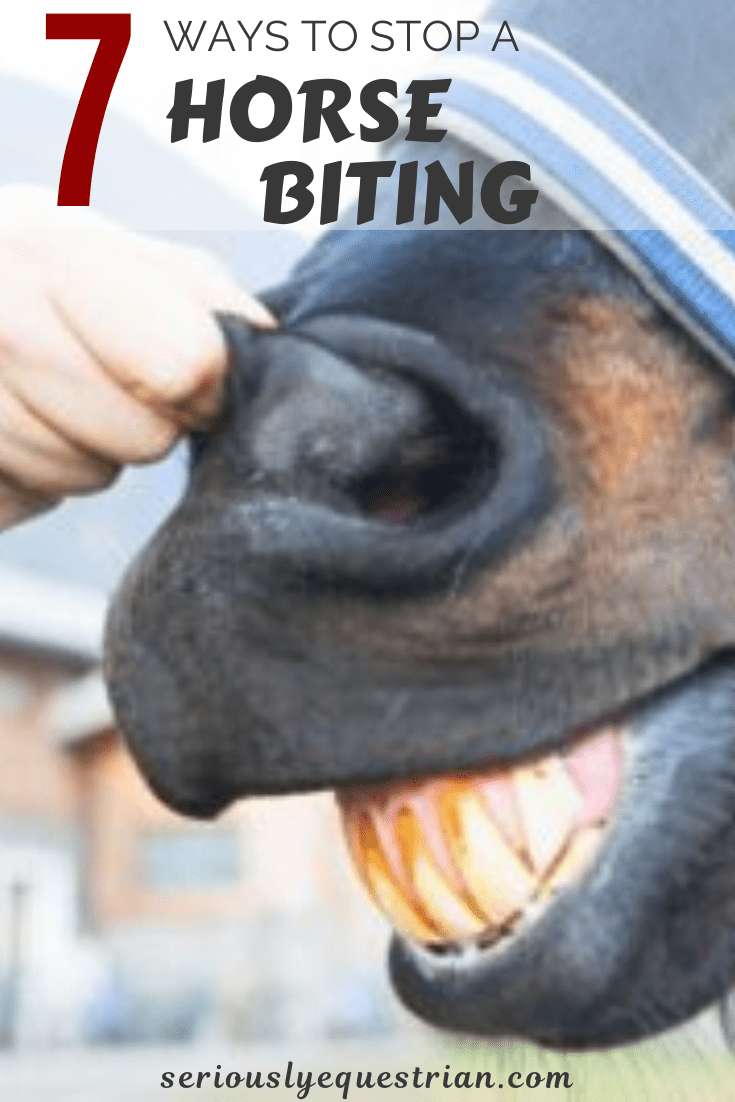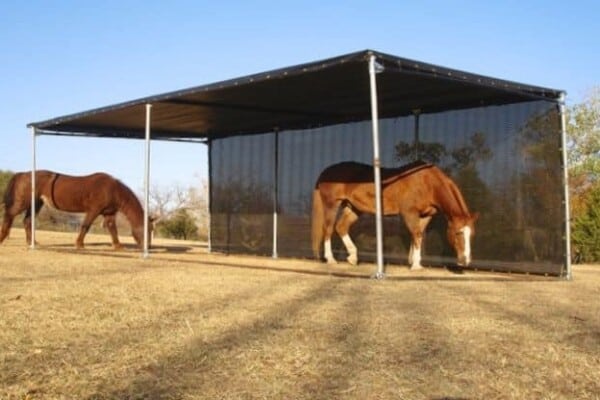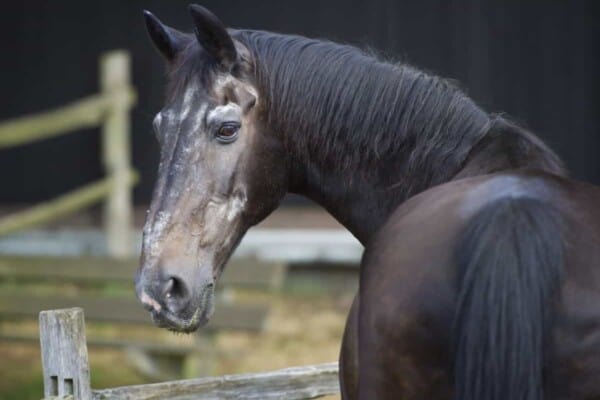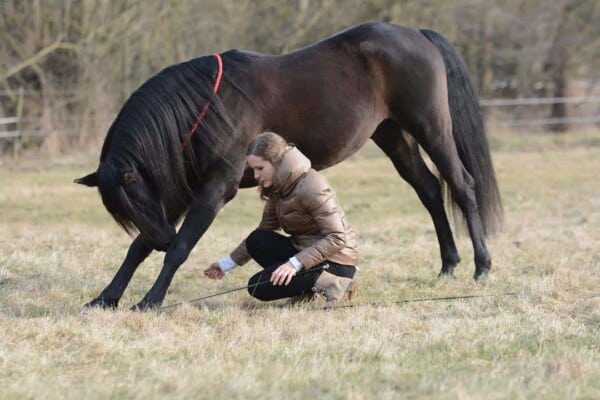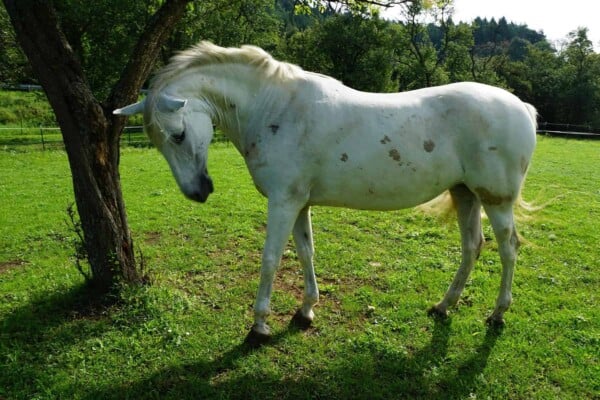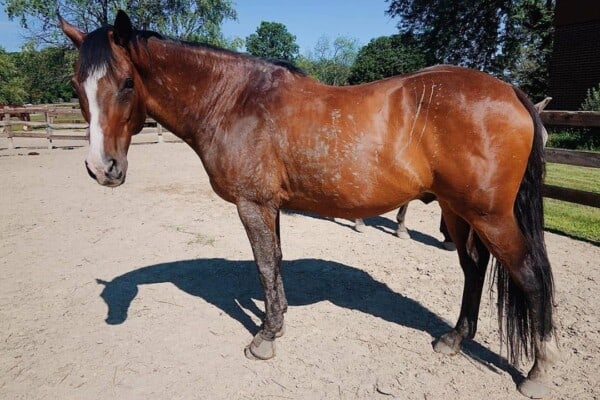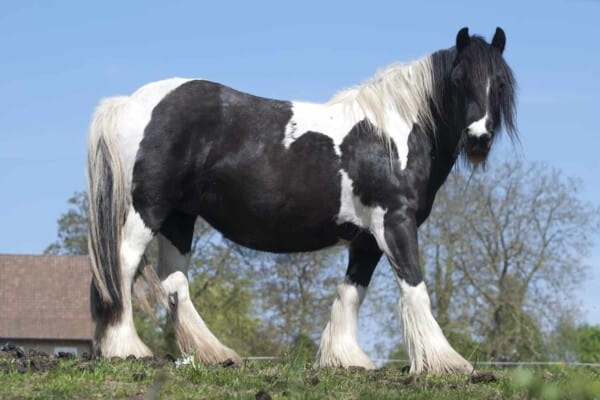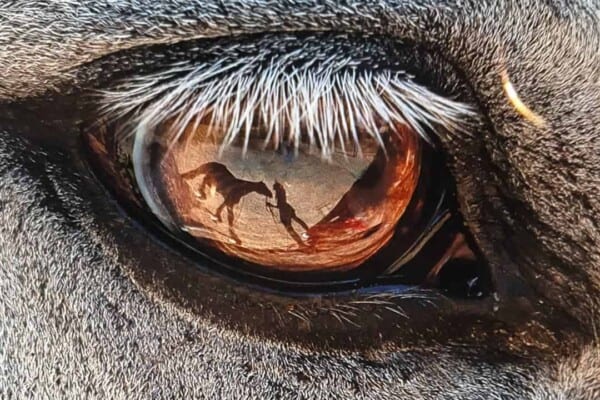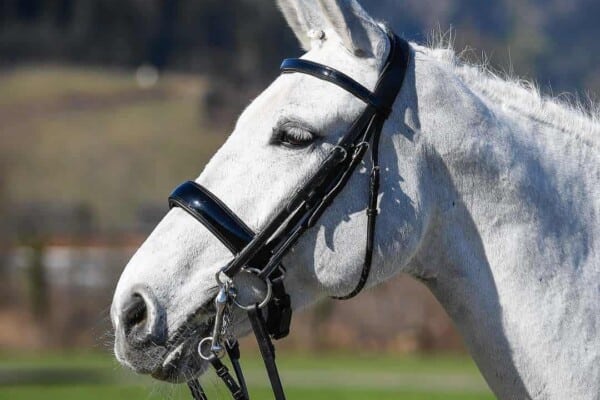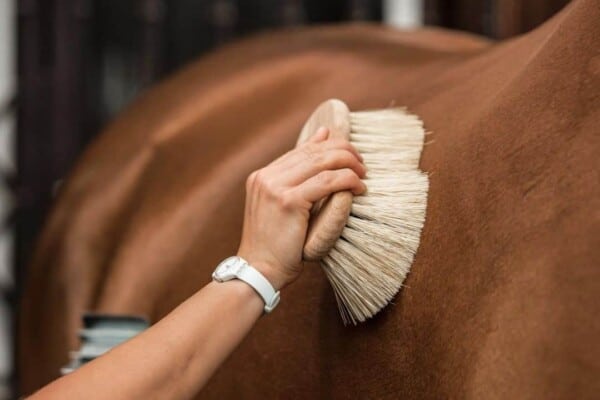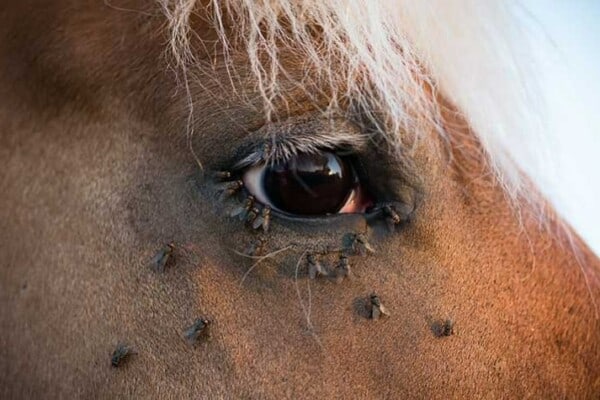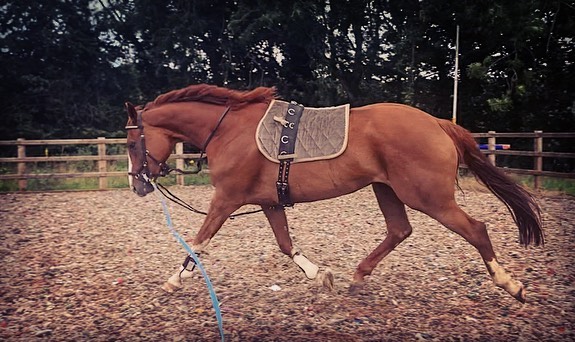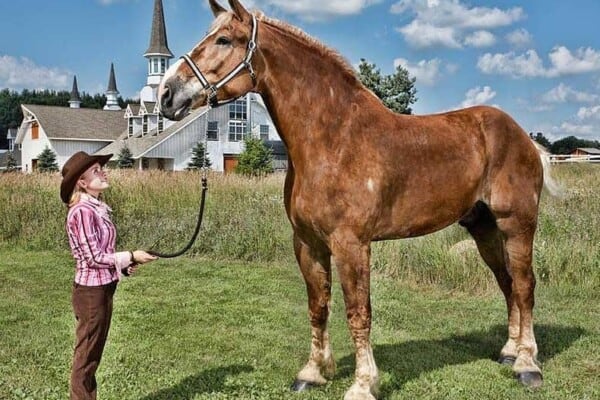Anyone who has been on the receiving end of an equine nip or bite will know only too well how painful it is. Probably less deadly than a kick, biting is nevertheless an unwelcome and dangerous habit. There are many ways to stop a horse biting but first we need to understand why a horse might bite or nip.
Why do horses bite?
If you observe horses at liberty in the field and even sometimes under saddle, they will often bite one another to defend themselves and to assert dominance in the pecking order. Squabbling over hay rations is a normal occasion to see some horsey teeth.
Horses will use their teeth gently when they mutually groom each other when at pasture. Sometimes this can get a little too vigorous with one horse inflicting a momentary nip on his companion but generally; this is horse interaction and is not intentional biting.
Other causes for biting will include aggression over and above the usual herd bickering. This might be caused by pent-up stress, or a horse confined to the stable for a long period of time due to an injury perhaps. The biting habit can be caused by current pain or discomfort or, maybe a response to a memory of such a situation. It can also arise from poor early handling techniques. The way to stop a horse biting is to understand the cause. Here are 7 ways to stop your horse biting in certain situations:
- Stop Feeding from Hand – Accidental biting can often happen if you treat feed from your hand. If you want to reward with food then feed on the floor or from a feed bucket. If you feed out of your hands then the horse will always be searching your hands for treats and can easily mistake your finger for a tasty snack
- Ensure tack is comfortable – Biting can often occur when tacking up as a reaction to discomfort or pain. All horses should be in a routine of regular saddle checks and back treatments to ensure there is no soreness or pain present. If you are happy with your tack then the horse is possibly remembering an occasion when the saddle did hurt or he had a sore back in the past. Soreness in the girth area can also be a sign of ulcers. Experiment with different types of saddle pad or use a comfort girth. Always tack up with care and girth up gradually to make it as comfortable as possible for any horse, biter or not. If you have ruled out the obvious but are convinced your horse is exhibiting pain when saddled up then ask your vet to check him over.
- Don’t give them the opportunity – Nipping a riders butt can be humorous to watch but is damn painful for the person on the receiving end of it. This is easy to resolve with an assistant holding the horse. If you are on your own then use a mounting block as you don’t have to turn your back to the horse’s head. Keep your reins shorter and flex the horse’s head to the outside as you get on.
- Don’t allow mutual grooming – you are not a horse and your horse needs to respect your superiority. Don’t allow your horse to groom you as sooner or later you will be on the receiving end of some sharp teeth
- Good management practices – make sure your horse has access to adequate forage if he is spending long periods of time in the stable. Horses are grazers and insufficient grass or forage will cause other problems as well as biting, such as gastric ulcers and stable vices like cribbing and wind sucking. Some horses just have more active minds and require extra stimulus so use stable toys to stop them getting bored Try leaving a radio on, stable the horse in a busy part of the yard so there are lots of activities to watch, invest in a mirror
- Good early handling – Often poor early handling can lead to nipping or biting. Over time this can become a habit. If this is the case perhaps the horse could benefit from a process like clicker training to re-educate them to focus on something else. Young horses explore everything with their mouths a bit like puppies and toddlers who put everything in their mouths. Early training is vital to stop them from exercising their teeth on humans
- Consistent handling practices are essential if you have a habitual biter who was not of your creation. Once horses have learned to bite then even if you remove the original causation – ill-fitting saddle, poor early handling, pain – the habit can still remain. You can improve this by offering the horse a totally consistent response when he does bite or nip. The horse has to respect you even if he did have a legitimate reason for starting to bite once upon a time. Ensure that you always top of the pecking order and that your horse respects you – there may be other undesirable behavioral traits in addition to biting. Don’t let him drift into your space when you are on the ground. Be as consistent with your ridden work as you are when dismounted
If your horse has never bitten and then starts to do so without warning then this can be an indicator of a health issue. Horses who are sick or uncomfortable may exhibit sudden changes in behavior which you should take seriously and investigate further. Horses don’t tend to bite for no reason although reasons do include entrenched behavior learned at an earlier point in time and an acquired bad habit.
If there is no clear indicator on the health front, then a physical examination by a vet and some routine blood tests can be a good starting point. These help you to rule out conditions and illnesses going on internally which you simply cannot see and which may have no obvious outward signs and symptoms.

